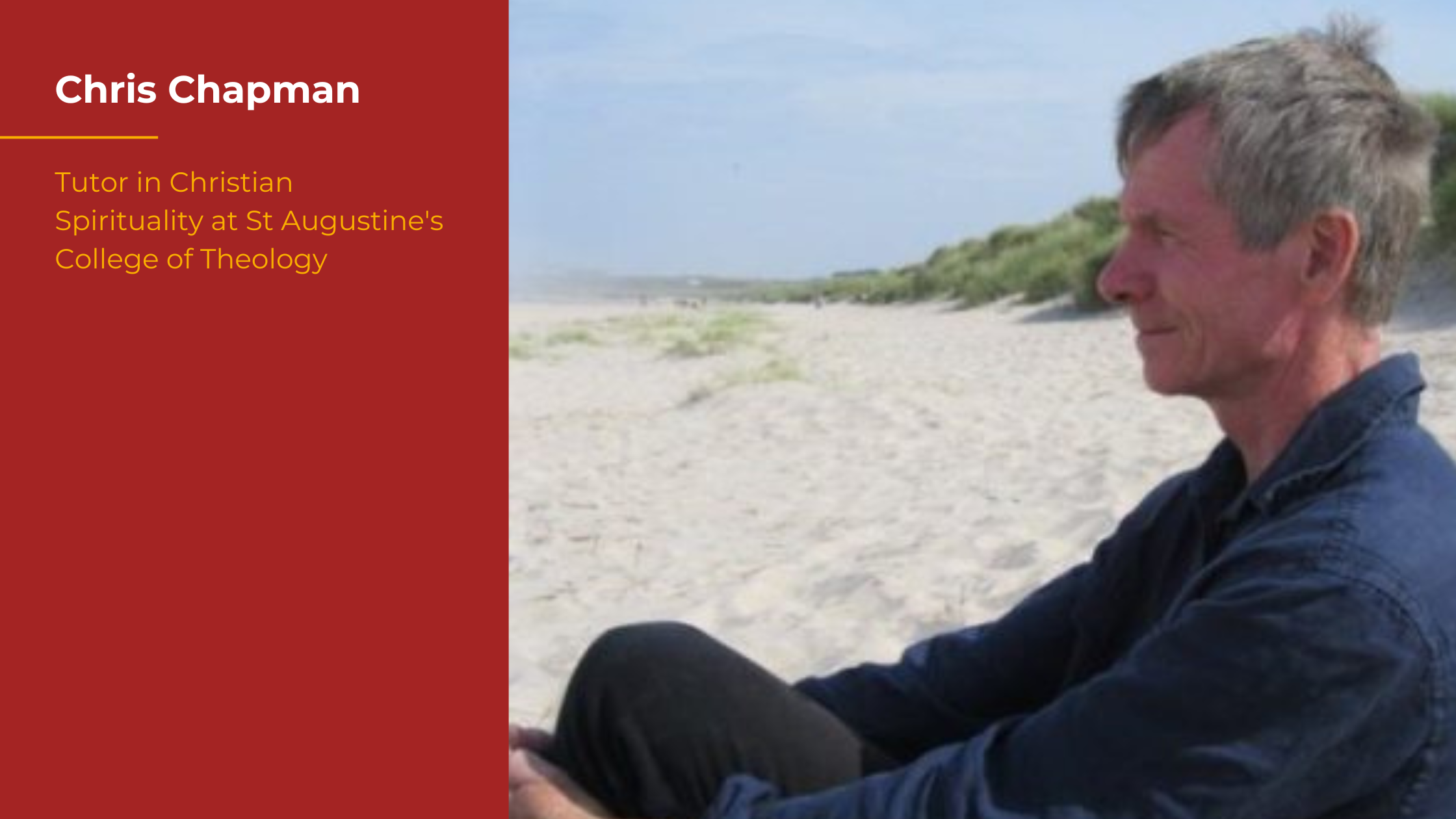
Christian Spirituality tutor Chris Chapman chats about his approach to teaching – and how valuable it can be to remember that no one has all the answers.
Based on an interview with Chris Chapman
When I’m teaching the Texts and Traditions in Christian Spirituality module, I aim to guide students towards two key outcomes.
Firstly, to establish an academic understanding of some of the riches in the Christian spiritual tradition. And secondly, to explore how these traditions connect, challenge or compare with our own experiences.
Spirituality involves a conversation between theology and our experience. To begin to puzzle it out, we must sometimes let go of the books and engage our hearts alongside our heads.
Studying theology as both a spiritual and academic pursuit
Studying theology has, in my personal experience, always had a personal dimension to it – it’s never felt like an exclusively academic subject.
As a college, we want to encourage students to pursue both personal formation and theoretical learning; to engage with the different layers that make up the experience of studying theology.
One of those layers is learning about the subject matter and understanding it. Another equally important layer is learning how to be in dialogue with that understanding. Through the study of theology, you can learn to look critically at you own sense of understanding; to ask questions of it and allow it to ask questions of you.
As a teacher, I want to offer people a gentle invitation to stay with unfamiliar things – and to resist the temptation to run away from questions.
The value of being able to question your own understanding
I grew up being told, “This is what the truth is. If someone says differently, even if they’re well-meaning, they’ve got it wrong.”
Spirituality challenges that assumption. It encourages you to be in conversation with your understanding; to maintain that all-important dialogue.
“In my experience, when knowledge is dispensed from a great height, it often fails to fully connect with the student.”
Chris Chapman,
Tutor in Christian Spirituality at St Augustine’s
Take Julian of Norwich, for example. She was woman who lived in a hermitage during the 14th century. You might ask, “What could she possibly have to say about living now?”, yet when you read her writings, she’s got all sorts of things to say.
She talks about how we can make sense of difficult experiences. She challenges us to review how we look at God: using female imagery, and asserting that she can see no anger in God; no desire to punish or blame.
I try to encourage people I’m teaching to not dismiss something just because it’s unfamiliar. You don’t necessarily have to agree with everything you come across, but let these perspectives be in conversation with you.
No one has all the answers
So much of learning is, ultimately, about exploring; you’re going into land you don’t wholly know.
Theological understanding provides a map for our understanding of God. But while studying maps and plotting a course is helpful, it’s not quite the same as actually venturing out to explore.
Spiritual wisdom from the past can help us navigate a new landscape of experience, giving us a sense of where we are and our direction of travel. For example, what does the Rule of St. Benedict have to say about ways we can shape our life so as to remain rooted in God and in some kind of healthy balance?
In my experience, knowledge that’s dispensed from a great height often fails to fully connect. It’s not as if there are people in the world who’ve got it all worked out, passing down their wisdom to the lower reaches who are still grappling with this stuff.
Teachers might have more experience ‘exploring’, but we don’t know exactly what’s out there either. No one has all the answers, and I think being honest about that makes the learning experience all the more real and exciting.
“I know how easy it can be to not look after yourself when you’re a priest”
Learning to be comfortable with not having all the answers also helps our ordinands training for ordination and lay readers prepare for ministry.
Before I became a tutor at St Augustine’s, I was a Catholic priest for nine years. Later, I went on to work for an Anglican diocese where I often found myself working alongside priests in the Church of England. There is sometimes an expectation that, as a priest, you are going to have the answers to people’s questions – and sometimes, you simply don’t.
I think it’s important for people in ministry to remember that their humanity comes first. I know from experience just how easy it can be to not look after yourself, especially when you first step into a role where so much is expected of you.
But being a priest is not just about your helping other people. It’s also nurturing what’s growing and developing in you.
“We’re all on this adventure of discovering who we are in God”
While ordinands might need specific guidance, my sense is that everyone in the classroom is on the same level.
Part of the whole experience of being somewhere like St. Augustine’s is meeting people from different traditions and backgrounds. Everyone is open to learning and, in my experience, open to and supportive of one another.
We’re all looking to go on this adventure of discovering more of who we are in God and what this means for how we live. Everyone in the classroom, myself included, have to deal with fundamentally similar questions.
We’re all taking the same exciting leap into the unknown. No one has all the answers but together, we’ll ask the questions that keep us open to greater possibilities.
Our warmest thanks to Chris for sharing his story and being an invaluable member of our college community.

